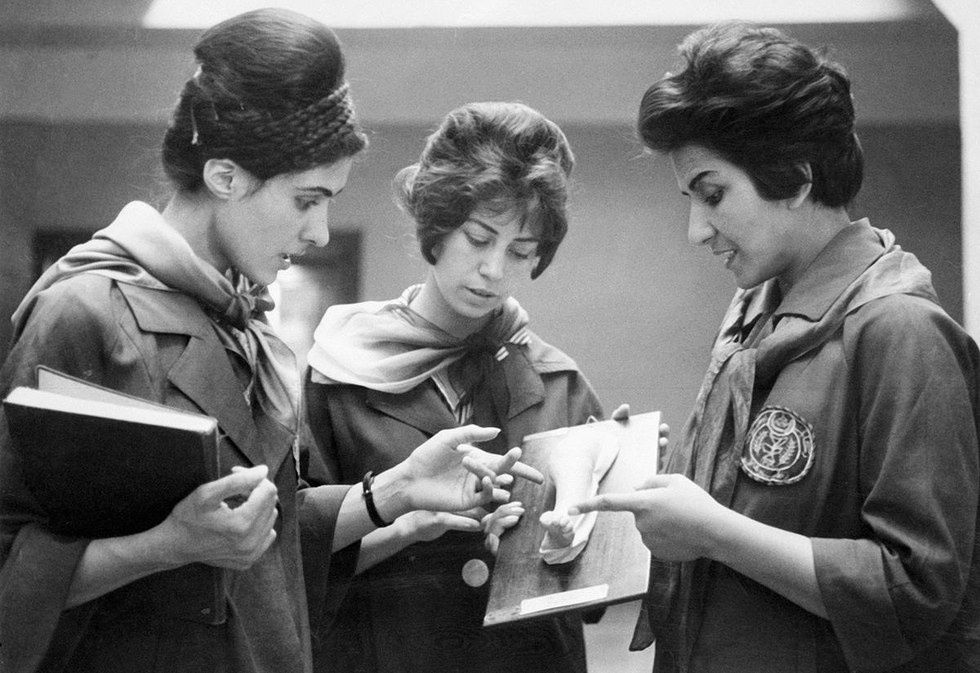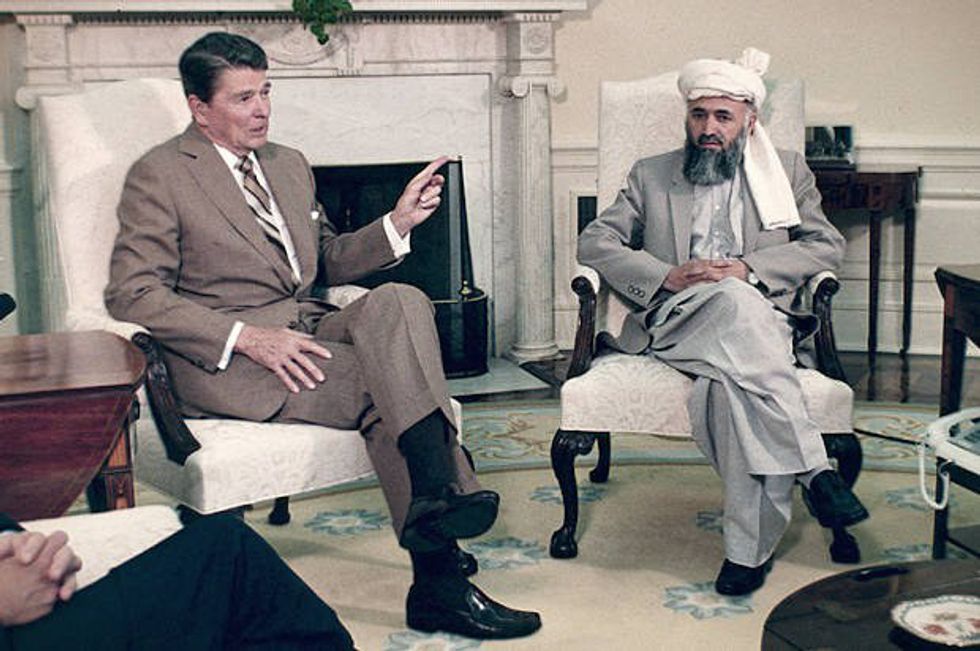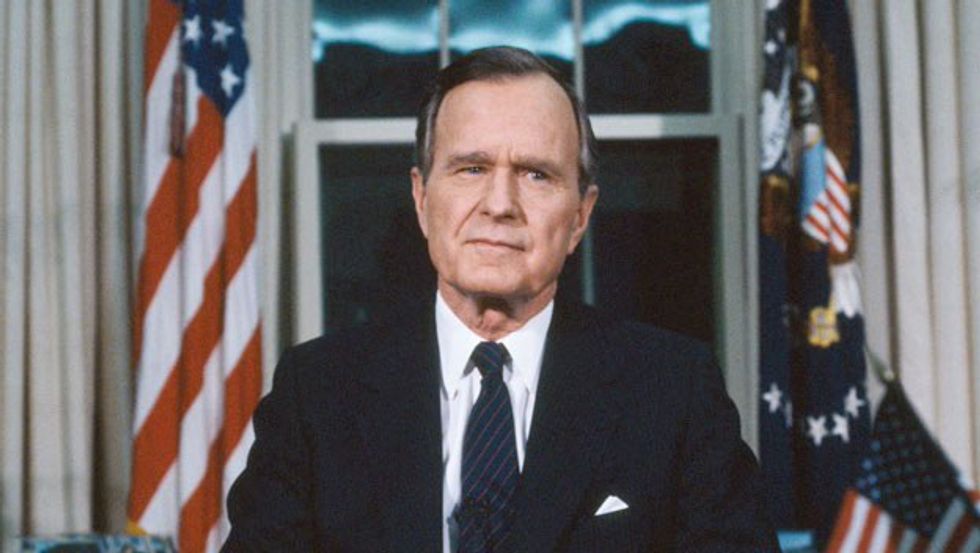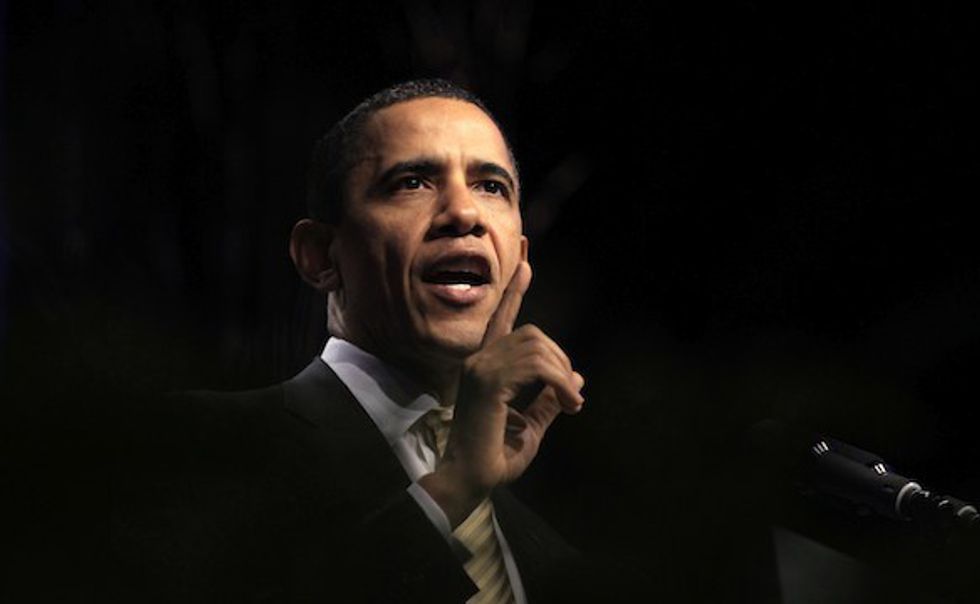It was not long ago that college student Ivy Ziedrich told previous runner for the presidential candidacy, Jeb Bush, "Your brother created ISIS." While that is a broad statement, it is not completely false. While many may disagree and assume it is another left-wing attack on George W. Bush — it should not be entirely disregarded. Those who have done their research will realize that there are many factors that allowed ISIS to exist as it does today. However, within their research they will recognize that history will prove that the United States did contribute to the emergence of ISIS.
What is ISIS?
Without going into too much detail, it was established under the name Jama'at al-Tawhid wal-Jihad in 1999, transformed to Islamic State of Iraq in 2006, claimed territory of Levant in 2013 which was translated as the Islamic State of Iraq and Syria (ISIS), and began referring to itself as the Islamic State in 2014. It started as an Al-Qaeda splinter group and is now an anti-Western militant group devoted to establishing an independent Islamic State. It is notoriously known for acts of violence, recruiting individuals, and punishing those who oppose them.
It started in Afghanistan (December 1979)
The early roots begin in Afghanistan, nearly half a century ago. From the 1880s to the 1970s, Afghanistan was progressive and mobilized, containing traces of Western values. It was considered to be more stable than most European countries during this era. Islam was important, but it was not as extreme or violent during this time. The invasion of the Soviet Union in December of 1979 was a catalyst for negative change.
The Reagan Administration (1981-1989)
When the Soviets invaded Afghanistan, we felt it was our God-given obligation to support the resistance fighting against it. The U.S. saw an opportunity to mobilize one billion Muslims, including multimillionaire Osama bin Laden, against what Reagan would call the ‘Evil Empire’. By helping them fight communism during the Cold War, we were also sending a message that we would not tolerate it. To us, it was beneficial to praise these "freedom fighters" and aid them in their fight. When the Russian army was defeated, Al-Qaeda was formed in 1988 under Osama bin Laden to continue the battle against those who were thought to be a threat to Islam.
The Bush Administration (1989-1993)
Throughout the Cold War, Iraq had been an ally of the Soviet Union. Therefore, there was existing friction between Iraq and the United States. The U.S. would then sponsor the Gulf War, which was a conflict between Iraq and thirty-four other countries. Upon the Gulf War ending, focus of Al Qaeda shifted to fighting the growing U.S. presence in the Middle East. While we presented ourselves as supportive, we were damaging their infrastructures which lead to bitterness on their part. In simplest terms - we overstayed our welcome, we did not keep our word to them, and we did not find ourselves at any fault. Positive relations with Osama bin Laden declined. At this point, it is important to note that while Al-Qaeda does exist, ISIS has yet to emerge.
The Clinton Administration (1993-2001)
After years of conflict and the beginning of a battle against Al-Qaeda, Bill Clinton launched missiles on Al-Qaeda bases in Afghanistan and a pharmaceutical factory in Sudan in August 1998. The attack was in retaliation for Al-Qaeda's bombing of American embassies in Kenya and Tanzania. Clinton said, “Our mission was clear – to strike at the network of radical groups affiliated with, and funded by, Osama bin Laden, the pre-eminent organizer and financier of international terrorism in the world today.” We were under the impression that Al-Shifa was responsible for aiding Osama bin Laden. However, investigation afterwards proved that the factory was not involved. Osama stated, "The hearts of Muslims are filled with hatred towards the United States of America and the American president [Bill Clinton]. The President has a heart that knows no words. A heart that kills hundreds of children definitely knows no words. Our people in the Arabian Peninsula will send him messages with no words because he does not know any words." By this point, ISIS has been founded but is not recognized.
The Bush Administration (2001-2008) - Second Time's A Charm
September 11, 2001 - Al-Qaeda coordinates attacks on the U.S. landmarks.
October 7, 2001 - under The Bush Administration, the U.S. invades Afghanistan.
On March 20, 2003, the U.S. military, on orders of President Bush, invaded Iraq. Nineteen days later they threw out Saddam Hussein's government. A few days after that, President Bush or someone in his Administration decreed the dissolution of the Iraqi Army. Overnight, at least two hundred and fifty thousand Iraqi men—armed, angry, and with military training—were suddenly humiliated and out of work. From this, Abu Musab al-Zarqawi establishes Al-Qaeda in Iraq (AQI) as a result of our invasion and destruction. At this point, it is important to remember that while ISIS has existed for some time, they did not yet have any opportunities to emerge in the way they wished to. However, with the existence of newly formed AQI, ISIS was able to join forces with them for sometime. The only issue is that when Al-Qaeda in Iraq would cease to exist, ISIS did not. Instead, they were able to violently emerge from the remnants.
The Obama Administration (2008-2016)
While ISIS remained unnoticed for several years — it reemerged stronger than ever in 2011, when the Obama Administration withdrew troops in Iraq. However, it was President George W. Bush who signed the Status of Forces agreement in 2008, which planned for all American troops to be out of Iraq by the end of 2011. From here, ISIS began taking advantage of the growing instability in Iraq and Syria. Despite the United States proceeding with more than 8,000 airstrikes against ISIS within these areas — it has only continued to grow. Recruiting more individuals each day from across the globe, it shows no signs of stopping its progress.
What does all of this mean?
Well, we have defined ISIS as a terrorist group — with a us v. them mentality.However, by analyzing this timeline and the events that have taken place, we can view how we often praise those who benefit us, and condemn those who do not. We can view our actions and see how just like a domino-effect, one situation leads to another. In American history, the term "terrorist" is often used to selectively characterize those who we oppose because it is a term that does not discuss causation. Nevertheless, just as a disease, terrorism cannot be stopped unless you view what is causing it. The Republican presidential nominee and those who were once campaigning for the nomination have made it a mission to "bomb the shit" out of ISIS - as they use violent exciting rhetoric because the American citizens consume it as if it were a drug. Yet, if the American people truly wanted to understand what contributed to the emergence of this organization they so widely fear, they should first look to their own leaders.


























